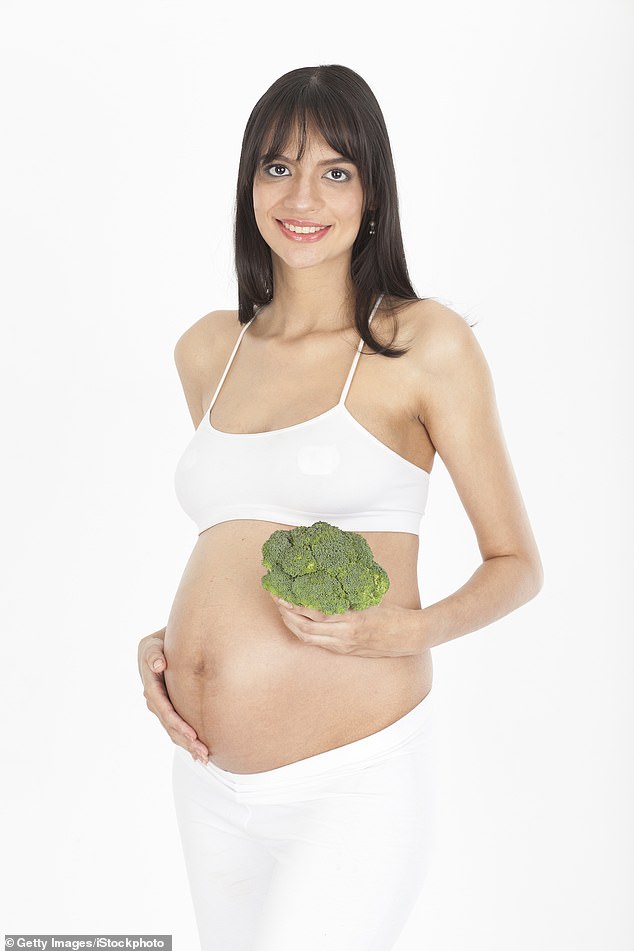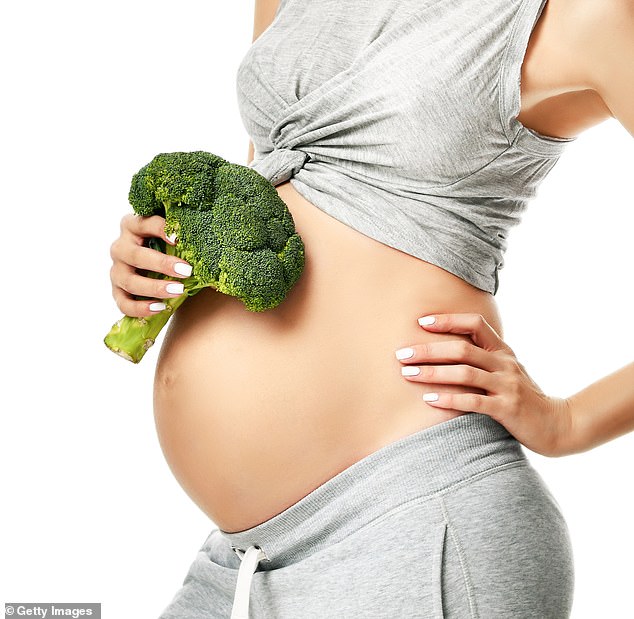- Researchers have found a phytochemical can be transferred through breast milk
Breastfeeding mums should eat broccoli and cabbage to pass along essential nutrients to their children, a study suggests.
Researchers have found that a phytochemical found in cruciferous vegetables – including Brussel sprouts, cauliflower, kale and radishes – can be transferred through breast milk.
Their current study is the first to focus on the transfer of sulforaphane (SFN), a sulphur-based nutrient which is thought to offer protection against cancer and diabetes.
The team, from Texas A&M University, measured levels of SFN in milk from breastfeeding mothers who had eaten cruciferous vegetables in the last 24 hours.
Author Dr Natalie Johnson said: ‘Phytochemicals are thought to offer protection against cardiovascular disease, cancer and loss of cognitive function.

Researchers have found that a phytochemical found in cruciferous vegetables – including Brussel sprouts, cauliflower, kale and radishes – can be transferred through breast milk. Pictured: File photo

Their current study is the first to focus on the transfer of sulforaphane (SFN), a sulphur-based nutrient which is thought to offer protection against cancer and diabetes. Pictured: File photo
‘We wanted to find out if phytochemicals or their metabolites may be transferred in breast milk to provide protection.’
Analysis revealed the nutrient was detectable in the mothers’ breast milk, suggesting that breastfeeding babies become exposed to it through feeding.
Separate studies in mice found that SFN activated ‘protective’ genes in the liver and lungs of offspring.
Writing in the journal Toxicology and Applied Pharmacy, the researchers said: ‘A bioactive plant metabolite was detected in breast milk from mums eating cruciferous vegetables.
‘Consuming cruciferous vegetables while breast feeding may confer benefit to infants.’
Previous studies have also found that caffeine and flavonoids can be passed on in breast milk.











